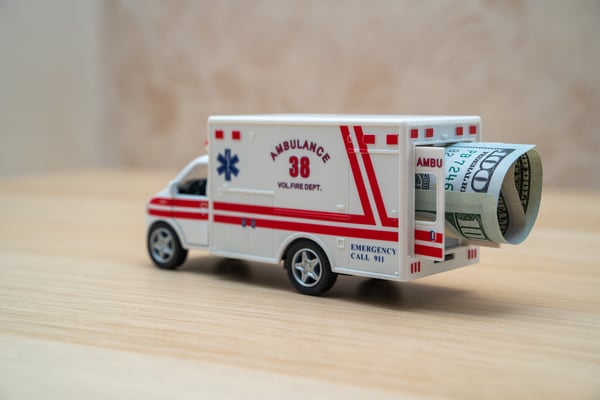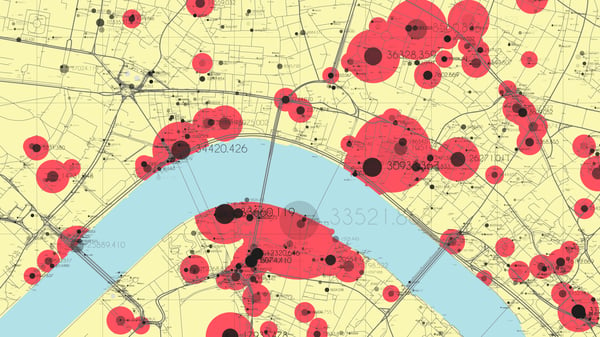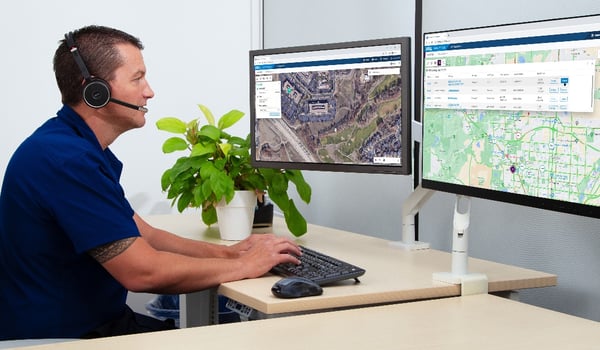4 Must-have Data Points for Dispatch-Billing Alignment and Maximum Reimbursement
Safety, Savings & Best Practices for Vehicle Operators
As we approach the end of the year, it’s time again to look back at the best of 2017

As we approach the end of the year, it’s time again to look back at the best of 2017. Our first of the series recaps our Road Safety journey throughout the course of the year. We’ve heard from EMS leaders on how the driver feedback system changed their agencies for the better, the importance of cultivating a culture of safety that works for your agency and the role Road Safety plays, and we’ve learned best practices for getting the most out of your Road Safety system.
If you already use Road Safety, there are some great nuggets here for you to learn how others use it. If you don’t have Road Safety and are curious as to what it can do for your organization, these posts can arm you with the information you need to make the decision to invest in the tool. We’ll countdown from the 10th most popular blog post of the year to number 1.

10. 3 EMS Leader Discuss How Road Safety Improved Operations
By Lindsay Alexander
What if you could reduce risky behavior, reduce fleet costs and improve patient satisfaction within your EMS agency? You can. Learn how Road Safety did all of the above for EMS leaders in West Virginia, Wisconsin and Missouri. Read the blog post
9. Safety Sells: How to Acquire More Facility Contracts
By Máté Nagy
Next time you’re negotiating a contract with a hospital or facility, leverage Road Safety as a differentiator between you and your competitors. By investing in the safety the driver feedback system gives your agency, you’re able to offer a compelling reason why you are different than other services as well as easily demonstrate your capabilities. Read the blog post
8. How to Get the Most Out of Your Driver Feedback System
By Brandon Mulnix
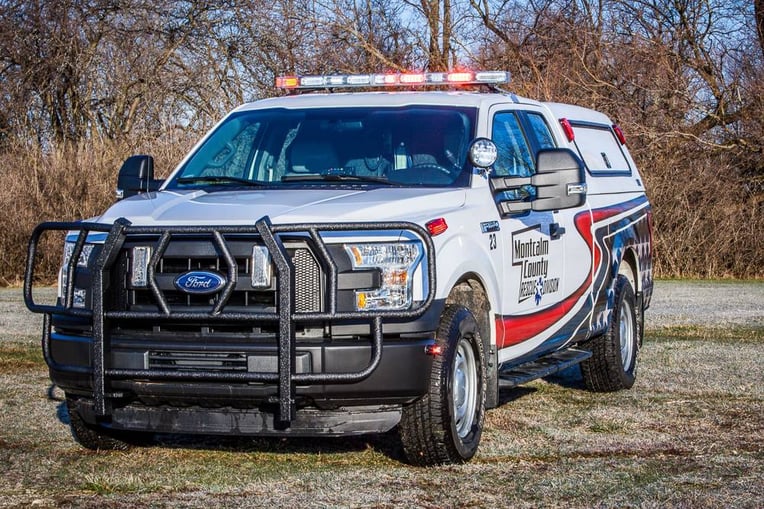 “Black Monday” is a day that changed the way we at Montcalm County Emergency Services (MCES) approach safety within in our organization. One of our first responder rescue trucks was responding emergency to assist at a mission-critical incident (MCI) when it collided with another vehicle; the accident killed two people. This tragic incident eventually led us to believe that two things needed to happen. Find out what they were. Read the blog post
“Black Monday” is a day that changed the way we at Montcalm County Emergency Services (MCES) approach safety within in our organization. One of our first responder rescue trucks was responding emergency to assist at a mission-critical incident (MCI) when it collided with another vehicle; the accident killed two people. This tragic incident eventually led us to believe that two things needed to happen. Find out what they were. Read the blog post
7. How Road Safety Enhances the Patient Experience & Why it Matters
By Ryan Thorne
While riding my motorcycle in October 2016, I T-boned a Chrysler, sending me careening into the air, and ultimately onto the rock-hard pavement. On that day, my perspective of EMS changed greatly. Seeing EMS from the patient’s point of view was an experience that I truly value. Not being able to walk, being stuck in a wheelchair and still trying to move on with my life was a challenge. As terrible as the accident was, it has transformed me into a far greater caregiver than I could have ever imagined. The experience further exemplified the need for Road Safety within my own organization. Read the blog post
6. How to Prevent Tampering on Your Road Safety Device
By ZOLL Data Systems
 It’s not a matter of if; it’s matter of when. Tampering of any company-owned equipment is very serious, and the consequences can be catastrophic for you the employer and employee. When it comes to safety devices such as Road Safety, there have been well-documented cases where employees have tried to disable the components of this safety system. Read the blog post
It’s not a matter of if; it’s matter of when. Tampering of any company-owned equipment is very serious, and the consequences can be catastrophic for you the employer and employee. When it comes to safety devices such as Road Safety, there have been well-documented cases where employees have tried to disable the components of this safety system. Read the blog post
5. The Cornerstone of a Northwest Missouri Fleet Safety Program?
By Scott Roy
It’s our job to deliver them safely to definitive care as well as return our providers back to their loved ones in the same condition they began their shift. Northland Regional Ambulance District (NRAD)’s story of Road Safety began as a projection of the statement above. We had a good safety record, we had no vehicle on vehicle traffic incidents in the past five years, and no employees injured for collisions. We had some anecdotal complaints of our operators and their safety in regard to speed and traffic laws, but no data to support or defend the accusation or more importantly the provider. Read the blog post
4. Proactively Equip Staff with Tools & Education to Change Behavior & Limit Accidents
By Les Polk & J. Todd Sheridan
When agencies experience a catastrophic accident, the repercussions are profound, and can persist for years. Not every incident is preventable, but it’s imperative that we equip our front-line staff with tools and education to avoid preventable incidents. At Robert Wood Johnson University Hospital Mobile Health Service (RWJUH-MHS), we decided it was time to take a closer look at how we can best meet this imperative, for the safety of our patients, staff and community. Read the blog post
3. 5 Ways to Guarantee a Culture of Safety Sticks
By Ryan Thorne
New to the idea of a culture of safety? Or perhaps it’s been on your radar for a while, but you haven’t figure out how to try create a sustainable plan to get there? Here are five tips that helped me successfully create and nurture the culture we wanted at Thorne Ambulance. Read the blog post
2. Bloomington Hospital EMS Tried a Competitor of Road Safety for 1 Year
By Kelly Mullis
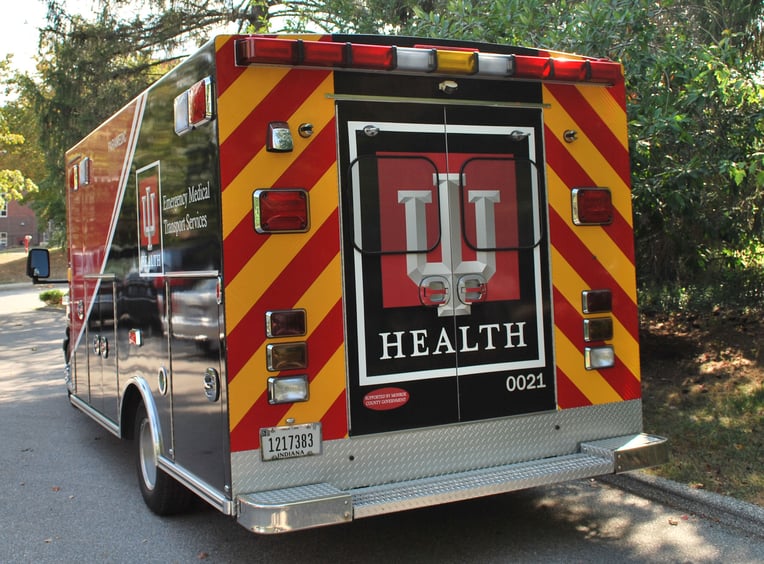 Bloomington Hospital EMS was an early adopter of Road Safety, starting with Road Safety 3000. We found the driver performance feedback system was beneficial to our agency in many ways. Reports were easy to run. And even more importantly, the feedback it provided helped us protect our employees. Road Safety did everything we needed it to do. So why, in 2016, did we move over to a competitor system? We thought we couldn’t afford to upgrade to Road Safety 4000, so we went with a cheaper option. Find out what happened. Read the blog post
Bloomington Hospital EMS was an early adopter of Road Safety, starting with Road Safety 3000. We found the driver performance feedback system was beneficial to our agency in many ways. Reports were easy to run. And even more importantly, the feedback it provided helped us protect our employees. Road Safety did everything we needed it to do. So why, in 2016, did we move over to a competitor system? We thought we couldn’t afford to upgrade to Road Safety 4000, so we went with a cheaper option. Find out what happened. Read the blog post
And the most viewed blog post on Road Safety in 2017 is…
1. How Florida Hospital Closed the Divide Between Air & Ground EMS
By Margot Ververis
One of the first things I noticed when I began managing ground EMS is the difference in culture of safety adoption. EMS by ground is much more common, and is based on availability of resources and, to some extent, cost. Once a call is dispatched, there are no checklists or discussions around whether the weather, crew fatigue or equipment status would make for a safe transport. Find out how I was able to bring the culture of safety from Air EMS to our ground operations. Read the blog post
Related Posts
How EMS Agencies Can Reframe Need and Refocus Resources With Geospatial Analytics
How To Minimize Radio Chatter and Reduce Guesswork With Smarter Dispatch Resource Management
ZOLL Pulse Blog
Subscribe to our blog and receive quality content that makes your job as an EMS & fire, hospital, or AR professional easier.
ZOLL Pulse Blog
Subscribe to our blog and receive quality content that makes your job as an EMS, fire, hospital, or AR professional easier.


